The energy hits you as soon as you walk in the door. The lights are dimmed, and the bouncers at the front have to yell over the throbbing of the drums coming from the back as they ask to see your ID. Your hand is stamped and you gently nudge your way through a throng of bodies swaying to the beat as you make your way first to the bar, and then to the dance floor.
The presence on the stage is commanding but intoxicating, demanding your attention and refusing to relinquish it until the set is good and finished. You lose yourself in the lights, the sounds, the people, the energy, at least for a little while. It can be difficult to imagine these sorts of spaces after a year-and-a-half of forced respite from live music, but one spin through ARENA, the upcoming sophomore album from Chicago trio Pixel Grip, is enough to almost make you feel like you’re there. Comprised of vocalist Rita Lukea and producers Jonathan Freund and Tyler Ommen, very few rising artists are more intimately familiar with the spirit of the club than Pixel Grip, who only seem to have been emboldened and empowered by the difficulties of recent months. Following in the footsteps of their standout 2019 debut record HEAVY HANDED, ARENA is several steps darker, grimier, more bruising, and more hypnotic. It feels like a purer and more confident distillation of what Pixel Grip is and can be, with all of the punchy sound design, explosive polyrhythms, and irresistible charisma that made their debut so memorable. Fresh off the cover story in the latest edition of Chicago Reader, I got the chance to speak with all three members of Pixel Grip about their past, their present, and their plans for the future as their music continues to push them to greater heights.
So, first of all, how are you guys doing?
Rita Lukea: We’re doing good, we’re kind of living off the high of having that premiere in Chicago Reader, and we’re about to work more. We have more work to do, rehearsing for a few gigs that we have coming up, but I just made us a vodka soda, and we’re vibing!
Let’s start at the beginning. I know that you guys met in high school in Crystal Lake (Illinois, a suburb of Chicago). How is it that the three of you came to be playing music together, and what brought the three of you together to begin with?
Jonathan Freund: We’re finding out as we get older, when we look back at what brought us together, it’s the kind of unspoken camaraderie of being an outsider. We somehow felt alienated in the same ways, which attracted us to each other. I think initially we were all art club weirdos, and we just wanted to hang out and make weird projects and listen to music that nobody else was listening to at the time, and we kind of just created a bond that we kept going with. We’re all creative and we want to be making things all the time, so naturally we were going to make some kind of project together. Music was the one that stuck.
So obviously the three of you getting together eventually results in HEAVY HANDED. I don’t want to dwell on the last album too much, but I did have one question. What did you learn and gather from the experience of putting out your first album that shaped and informed your approach to making LP2?
JF: I think one of our biggest takeaways was to have a deeper sense of trust in ourselves, and have more control over our final recordings and really be firm in what we would and would not stand for. I think it came with knowing what we wanted and knowing that we wouldn’t make sacrifices at any step of the process.
RL: Recording HEAVY HANDED was my first studio experience, so I was really just doing my best. So going into ARENA, I had the experience, so I think I was a bit more… demanding.
JF: We all were, but I think that’s what we needed to do to feel totally happy with the finished product.
RL: Because it’s those things at the end of a project that you were unsure of but somebody convinced you out of doing, and when you listen back you’re like “I should’ve done it the other way.” Once you experience that, you think “I’m never living with that regret again, I’m going to put my foot down and get all the things that I want to happen, to happen.”
That completely makes sense, and I think that comes through on the record. You get the feeling listening to it that it’s more what you guys wanted it to be and it feels more… I don’t know, self-assured would be a word?
RL: That’s a very affirming compliment, thank you.
I mean it! I’ve listened to it I think six or seven times in the last few days. We will come back to ARENA, but to continue on: You guys make music for crowded nightclubs, for basement bars, for black-lit dance floors. Having seen you perform in a club setting before, and having seen some of what you’ve expressed on social media over the last year, I very much get the impression that you feed off of that crowd energy and really relish live performance. So I have to ask what you’ve been doing for the last year and how you’ve gone about adapting to an environment where shows are pretty much off the table and everyone is mostly stuck at home.
JF: You’re opening up a Pandora’s Box here. *laughs*
Tyler Ommen: Last year doesn’t exist, it was a nightmare.
I’m with you on that.
TO: We were in Minneapolis and we all went to a big club together after playing a show, we came back to Chicago and all of the sudden I think everything closed down within the next week or so. It was very fast, and very shocking. We were still finishing up the recordings of ARENA, and we were also just making a lot of music for ourselves. It was getting really hard to sort of imagine a club again, but it felt good to make music freely in that way. It was tough, though. I try not to think about last year. *laughs*
RL: It definitely was a reframing and reevaluation moment, because how am I supposed to value myself if I have no access to the currency that gives me worth? You know, ticket sales and people and an audience and the reverberation of a show and putting on a production… This entire year has been one complete identity struggle, because I’ve had to have a different identity for the entire year. So… it was hard. But we’re getting gigs, we’re booked until October, and it’s the last leg, and I have hope. The clouds are parting.
It certainly feels like we’re coming out the other end of it, which is obviously great. While we’re on the topic of the absence of live music over the last year-plus, the last show I saw prior to everything shutting down was Pixel Grip at the Museum of Contemporary Art Chicago in February, where you guys set up on the floor in the middle of the main hall and broadcast the music through the entire museum, and which you guys then released as a live album through Bandcamp not long afterward. I’m curious where the idea came from to do a museum set, a very atypical setting for a Pixel Grip show, and what it was like adapting your material to a more ambient sort of performance.
JF: We were asked by Cameron McEwen, who ran a series called Soundtrack Series. From what we had seen it was primarily DJ sets—by really great DJs at that, it was fun to see. We went and saw some of these sets that were kind of the same format, the DJs would set up somewhere on the first floor and their music was broadcasted throughout. We’re not a band of DJs, but for as much club-heavy, industrial music that we write and love, we have a lot of sides to us that we like to explore, and this felt like one of our isolated opportunities to try our slower songs, our more ambient songs, and try them in a totally new format that was also completely different to us, using field recordings and improvisation. That was kind of our take on being DJs while still all communicating together as musicians. We definitely still incorporated some of our dance songs, but it felt like one big long continuous mix, and I thought it was thrilling to push ourselves to try something brand new in like a one-time experience.
As I said, that show was the last thing I saw, so it’s been on my mind through the last year or so. The experience of going through the museum and looking at the exhibits and hearing these sort of reworked versions of songs I had been listening to was very cool. It occupies that space in my brain where it’s like “this is the last show I went to,” and you ruminate on it because you haven’t seen live music in over a year.
RL: That’s how I felt about the very last show that we played, I was replaying the mistakes and the fuck-ups that we made at that show for like six months after. I was really super hard on myself and I was like stuck in that place for a very long time, it was very odd.
I think that’s just natural though, for us to have not been in these communal spaces for so long, it’s hard to get it out of your head. It’s just the headspace that we’ve had to adopt.
On the topic of the MCA show, you guys played several of the songs that appear on ARENA at that show, so clearly at least a portion of these tracks have been in development for a while. How would you say that the pandemic affected or shaped the production of this record given that some of the material was ready to go before things really started to go off the rails?
RL: Well we had to finish up the album. We had studio time booked in April of 2020, and all of the songs were produced at that point, they just had to be mixed and mastered. The studio experience was slightly tense… but we were going to be together and we were going to finish this album no matter what. “Dancing On Your Grave” was a song that was added, we started recording and producing it in October and we got the final mastered version of that song back in January of 2021. That was the song that I wrote when I was having, like, my 14tth mental breakdown of the year, and I recorded this demo and uploaded it to TikTok. It went semi-viral and everyone was like “you need to record this now!” and we got such huge feedback from it that we tacked it onto the album super late in a really non-traditional way. But it still has the feeling of ARENA, it still felt like the sound belonged in the Arena, so we added it. We did a lot of unconventional things like that throughout the album process because it was so delayed that any last-minute change that we wanted to do, we could. So we kind of fawned over this project and made a lot of last-minute details because we had the time to.
I would agree that not having that background coming in, I couldn’t tell at all that that song was recorded or written later, I think it fits into the album perfectly. My first impressions listening through ARENA are that it builds upon a lot of what HEAVY HANDED established by leaning even more into its transgressive elements. It’s harder, it’s darker, it’s more depraved in spots, and through all of that it feels like we get a better look at what Pixel Grip is and what sets you apart as artists. What would you guys say your aims and influences were in making this record and how do you feel you accomplished your objectives with it?
RL: Going into HEAVY HANDED, we wrote those songs from our studios alone, just playing with each other, we weren’t selling out shows yet and we had no idea what it was like to play to a sold out venue. So the inspiration came from our climb in the scene and obtaining that sold-out status. Instead of writing songs for ourselves we were writing songs for an audience, and that was a complete paradigm shift in our psyche. It was like… this needs to make people dance! If it’s good that’s great, I love making good, lovely music, but we need to make people fucking dance. We have the ability to not make dance music, we write a lot of songs that are groovy or sensual, but at the end of the day we were like “this album needs make people’s fucking heads explode on the dance floor,” that’s all we wanted to do. So I think that’s largely where we got our inspiration.
Let’s say you’re talking to somebody that you’ve never met and has never heard of Pixel Grip before. How would you describe this record to them?
JF: We use “club pop” as a kind of blanket genre for ourselves. We say that because we feel like we’re capable of expressing a large variety of emotions and moods throughout ARENA, and it kind of feels a little pigeonholing to ourselves to say that we’re a darkwave band or we’re a techno band. We use “club pop” as a way to embrace all of our influences of dance music that come together, even though there’s more primary influences of harder edge techno and that kind of industrial music, but we take what we like from lots of club and dance records and compact them into a succinct and potent message in a pop song. I think that we show our range in that way.
What is the “arena” and what is Pixel Grip’s place in it?
RL: The arena is a triple entendre. The arena is the stadium, it’s a show that we can play. The arena also can be your headspace, the demons that you’re battling and the things that you’re struggling with. And the arena is also the society that we live in, we live in an arena, because of capitalism and the way it pits people against each other. The dance floor and the club is a place where you can escape those things. We decided that the name would be ARENA after going through the pandemic and recording this album through the pandemic where we felt like all the odds were against us and we were constantly fighting.
The third single from the record, called “Demon Chaser,” has a feature from the incomparable Cae Monāe. It came complete with this incredibly chaotic music video that I love, partially because of the very arresting and subversive visuals and partially because it just seems like you guys had a lot of fun making it. What was the process of making this video like and how did the collaboration with Monāe come about?
RL: Working with Cae Monāe was really inspirational, she’s kind of just a fountain of creativity. You’ll ask her a question like “What do you think the color scheme of the video should be?” and she’ll send you a document with like a splash of colors and then also in text it just says “PUSSY.” *laughs* And that’s real, she actually did do that. Between (director) Todd Diederich, Cae Monāe, the three of us, and Feeltrip Records all coming together, the amount of creativity and ideas that was being thrown at the wall… it was an insane amount. We honestly had so many ideas that we kind of had to one by one distill them, and we discarded so many. “Demon Chaser” is the distillation of so many ideas, months of brainstorming and shooting the shit in this creative group process. It was a lot of fun.
JF: I just am totally now remembering the process of Zoom meeting with everyone two or three months before we shot it, and yeah there were so many ideas, and it is kind of funny to reflect on what ideas made the video cut and what we went with. At one point, Tyler and I were going to be cherubs! *laughs* We were going to have like Mona Lisa or Renaissance painting outfit energy.
RL: Yeah like Cae Monāe was gonna be a spider. *laughs* There were so many ideas. It literally just came down to “OK, what can we actually do?”
JF: We had to pick something.
RL: Like, stay on planet Earth, please! *laughs*
Well despite there being I’m sure countless ideas left on the floor, watching the final product it’s hard to keep up with the number of ideas that are in it as is. It’s a very cool atmosphere, and despite the fact that it obviously was not recorded in a club, you still get the feeling of that from the video which I think is something that’s very hard to organically capture. Speaking of shows and hopefully going back to doing shows in the near future, let’s do a quick hypothetical: Let’s say it’s your first show back, full capacity crowd, any venue you want with whatever other acts you want on the bill. What does that show look like?
JF: Sleeping Village to me is somewhat of a home base. I love that venue so much, it’s the perfect size and it sounds great. It would be fun to play there with our good friend from New York, Rare DM. We would love to have Cae Monāe join us on stage and do a set as well. The Metro would be really fun too.
Have you guys played the Metro before?
JF: We will! In September.
RL: I think my favorite types of shows are the shows where every act is really different. It would be super sick to like, have a DJ open the night, and then maybe there’s a drag performance or some type of performance art piece, and then maybe we play and then the show ends with, like, a hardware set. Which in my dream world would be accompanied by an afterparty at a rave at some warehouse in Chicago. And then afterward we would all get pizza! *laughs* That’s like my dream show.
Those both sound like excellent ideas.
RL: You should ask us who our dream headliner is. We could probably dream a little bigger, like… the one person I really want to open for is… I don’t know, I could see us opening for Billie Eilish or Nine Inch Nails… or New Order.
That’s a great question, you guys should ask some more questions!
RL: Sorry, I’m trying to make this article good for you because I know that answer was not the best.
It’s totally fine!
RL: I’m like “Be more interesting!” *laughs*
JF: But I think the answer is revealing of where our head is at. We love Chicago, but it’s time to expand. We would love to keep playing the venues that are familiar to us and that are around, but there’s so much…
RL: It’s not really our dream show.
JF: Yeah! There’s so much to explore, and there’s so much room and territory that we have to grow into, that I guess the question that Rita asked, and answered *laughs* is more where our focus is and what we’re really wanting our trajectory to be, and the fact that we’re going to make it happen.
Well then, building on that, you have so many new areas to explore and so much room to grow, what’s a spot or a city or a venue where you guys have not played that you would really love to play?
JF: I would really love to play in Los Angeles, Mexico City, in Europe. Like Berlin and Moscow, I think there’s a big market for our kind of music in those cities.
RL: I am really festival stage-minded, so I really want to play, like, Glastonbury, or Coachella, and Lollapalooza, and Pitchfork Music Festival. But my dream gig is honestly playing SNL someday.
What are you guys listening to right now, just in your spare time or for fun? What have you been enjoying from other artists recently?
JF: I feel like lately I’ve just been listening to my own music, I’ve noticed that I’m not listening to a lot of people except for what we’re currently working on. That takes up a lot of my listening energy. But I have been really into Geneva Jacuzzi lately.
RL: I have been listening to strictly techno, I really like to listen to Chicago hard house. I’ve been listening to this Italian techno artist, his name is Crypto Order, and I’m always spinning our friend Panther Modern’s music, which is a classic around here as well.
TO: I’ve been listening to NTS Radio, just various DJ mixes on there. Jon actually showed me NTS a year ago or something, it’s just fun to pull up that station and listen to other people’s mixes. You never know what you’re gonna get, so I feel like I’m discovering a lot of new music and hearing it from a lot of different places and not just from Chicago.
To close, this is a question that I’ve asked every Chicago artist I’ve talked to. What’s your favorite spot for pizza and your favorite spot for a hot dog in Chicago?
JF: OK, hot dogs is Redhot Ranch.
RL: For sure.
JF: Not even a question. There’s no debate. Their burgers too.
Literally every person I’ve asked this question has answered Redhot Ranch for the hot dogs.
JF: Really? *laughs*
It must just be correct, right? Like it must just be the right answer.
RL: Ok well now you’re giving me Hipster Syndrome and I have to give a different answer! *laughs* So my answer is The Freeze.
Ok!
JF: He’s disappointed.
There’s no wrong answer to this question!
RL: He just hangs up on us! *laughs* Tyler?
TO: Pizza? Ok, honestly… Frozen pizza. Home Run Inn pizza is so fucking good.
JF: Honestly tea.
It does kinda slap.
TO: And you get to eat it at home. I don’t like to eat in public so that’s my choice. But if I do go to get pizza somewhere… Archie’s Cafe in Rogers Park is this little hidden gem that does Neapolitan-style thin crust pizza. It’s insane. It’s really good.
JF: I support that decision for pizza.
TO: It’s very anti-deep dish.
RL: Aldi’s pizza. Aldi’s fresh pizza.
JF: The take and bake.
RL: The take and bake, it’s like $6.99 I think?
The take and bake pizzas from Costco are also pretty good.
RL: Could you hook us up with a Costco membership?
Pixel Grip’s stunning sophomore release ARENA is out now. You can check it out over on Bandcamp!


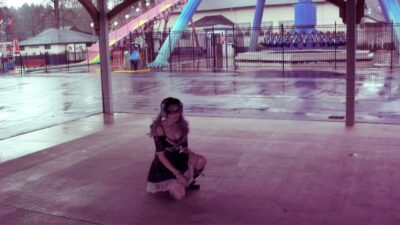
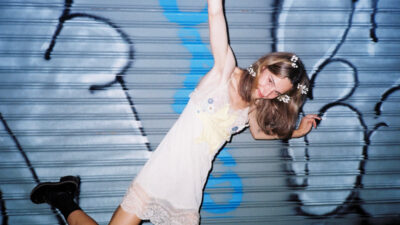
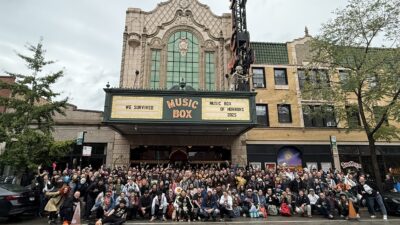
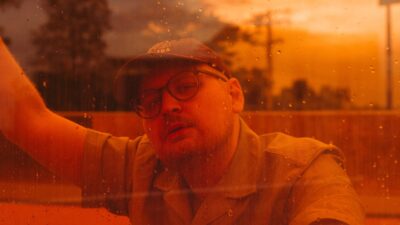
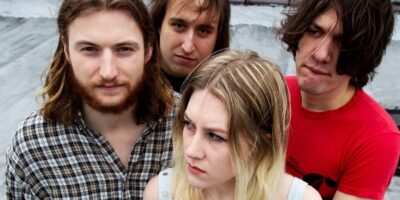
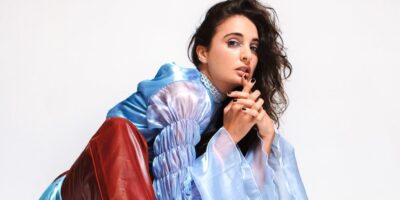
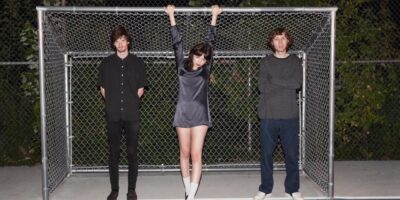
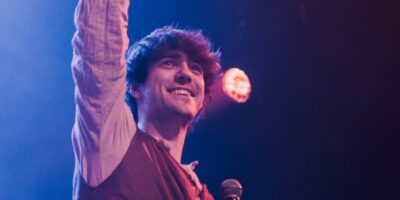
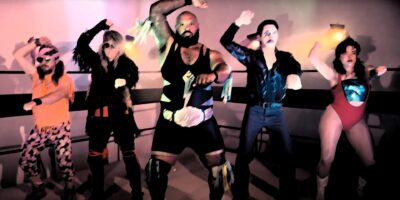
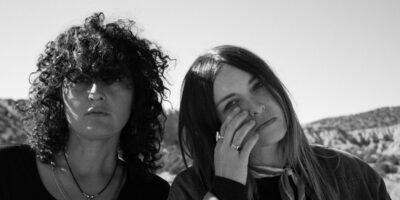




Comments